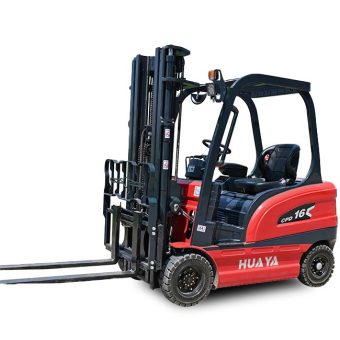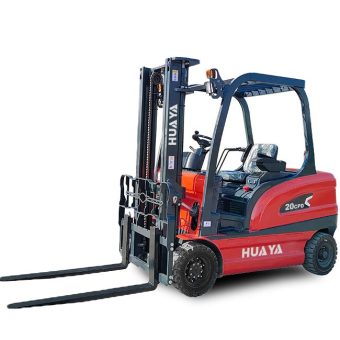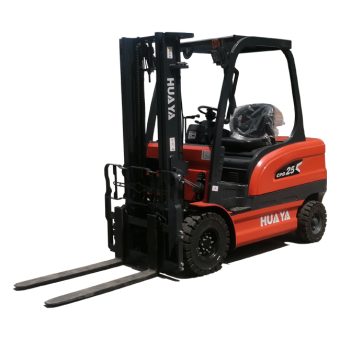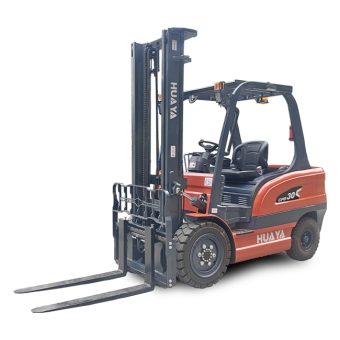
Новости
Электрические вилочные погрузчики завоевали популярность в промышленности благодаря своей экологичности и эффективности. Одним из важнейших компонентов, обеспечивающих их функциональность, является аккумулятор. В этой статье мы рассмотрим различные типы батарей, используемых в электрических погрузчиках, их характеристики, преимущества, а также особенности зарядки и обслуживания.
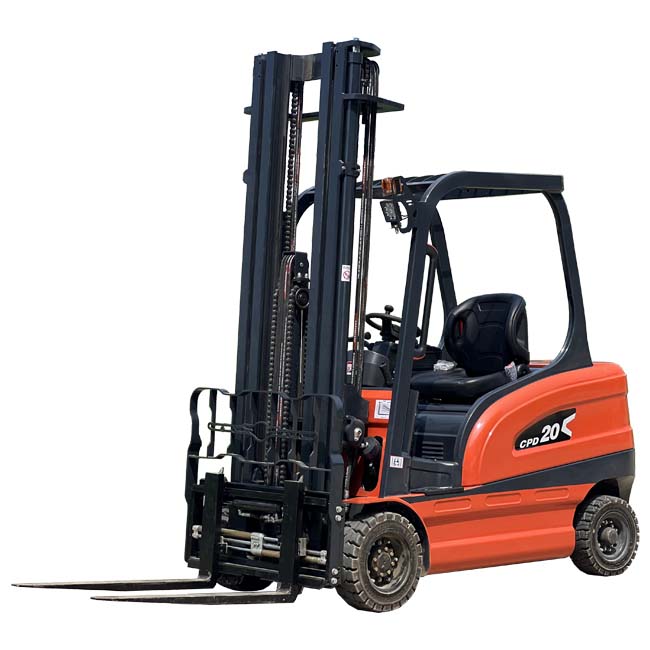
Свинцово-кислотные батареи традиционно используются в электрических погрузчиках. Эти батареи являются надежными и экономичными решениями. Они состоят из свинцовых пластин, погруженных в раствор электролита из серной кислоты. Преимущество свинцово-кислотных батарей в том, что они легкодоступны и относительно недороги по сравнению с другими вариантами.
Хотя свинцово-кислотные батареи имеют более длительное время зарядки, они обладают более высокой плотностью энергии, обеспечивая достаточную мощность для длительной работы. Однако они требуют регулярного обслуживания, включая доливку электролита и периодическую уравнительную зарядку. Кроме того, свинцово-кислотные батареи имеют меньший срок службы по сравнению с некоторыми другими типами батарей.
Литий-ионные (Li-ion) батареи становятся популярной альтернативой для электрических погрузчиков благодаря своим многочисленным преимуществам. Эти батареи обладают более высокой плотностью энергии, обеспечивая более длительное время работы между зарядками. Кроме того, они имеют значительно больший срок службы по сравнению со свинцово-кислотными батареями. Одна литий-ионная батарея может прослужить нескольким погрузчикам в течение нескольких лет, что избавляет от необходимости частой замены батарей.
Кроме того, литий-ионные батареи быстрее заряжаются и являются более энергоэффективными, требуя меньше энергии для зарядки по сравнению со свинцово-кислотными батареями. Это может привести к значительной экономии расходов на электроэнергию в течение всего срока службы электрического погрузчика.
Еще одним преимуществом литий-ионных батарей является их необслуживаемая эксплуатация. В отличие от свинцово-кислотных батарей, литий-ионные батареи не требуют технического обслуживания, такого как контроль электролита или уравнительный заряд. Это сокращает время и усилия, затрачиваемые на обслуживание батарей, что позволяет повысить производительность.
При зарядке батарей электропогрузчиков необходимо соблюдать рекомендованные производителем процедуры зарядки. Зарядка должна производиться в специально отведенных для этого местах с использованием специализированных зарядных устройств, подходящих для конкретного типа батареи.
Для свинцово-кислотных батарей важно поддерживать надлежащий уровень воды и не допускать перезарядки, которая может сократить срок их службы. Также следует регулярно проверять электроды, кабели и соединения, чтобы обнаружить любые признаки повреждения или коррозии.
В случае с литий-ионными батареями необходимо использовать зарядные устройства, специально разработанные для литий-ионных технологий. Такие зарядные устройства обеспечивают контролируемую и оптимизированную зарядку, предотвращая перезарядку или перегрев. Также важно соблюдать правила хранения литий-ионных аккумуляторов, в том числе избегать экстремальных температур и обеспечивать подходящие условия для зарядки.
Тип батареи, используемой в электрических погрузчиках, значительно влияет на их производительность, эффективность и требования к обслуживанию. Традиционным выбором были свинцово-кислотные батареи, обеспечивающие надежность при более низкой стоимости. Однако литий-ионные батареи становятся все более популярными благодаря более длительному сроку службы, быстрому времени зарядки и отсутствию необходимости в обслуживании. Прежде чем выбрать тип батареи для электропогрузчика, необходимо оценить конкретные потребности предприятия, учитывая такие факторы, как бюджет, энергоэффективность и простота обслуживания.
Предыдущий: Дизельный вилочный погрузчик
Следующий: Как долго работает электрический вилочный погрузчик?
